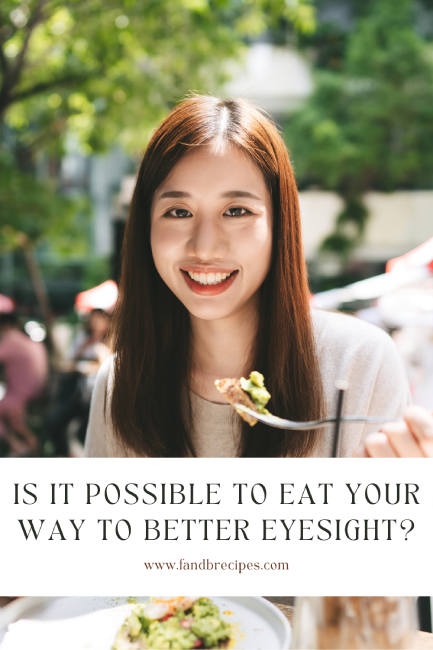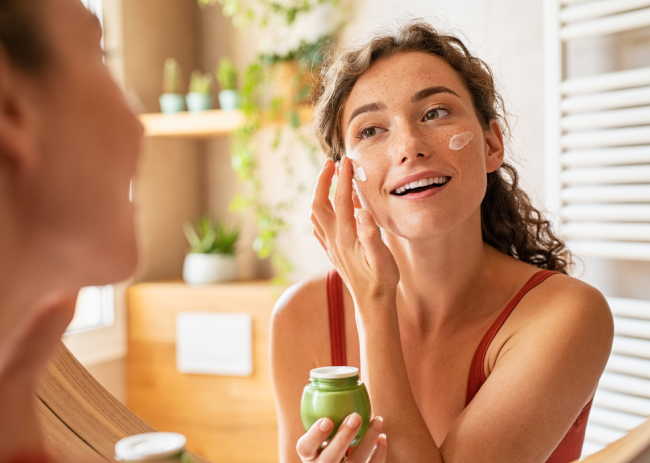Is It Possible to Eat Your Way to Better Eyesight?
It is conventional wisdom that keeping a healthy lifestyle benefits you physically and mentally. Your body cells require the proper balance of nutrients to thrive. The right diet improves your immune system, reduces your risk of killer diseases, and should naturally impact your eye health.
Eye health and good vision are connected to some factors like genetics and eyestrain. Several studies confirm the link between eye health and diet. The American Optometric Association lists nutrients that may help improve eye health, including:
- Essential Fatty Acids: Essential fatty acids like omega-3-fatty acids power the cells and boost CNS activity. They are also crucial in vision development and maintenance of eye function.
- Vitamin C: Vitamin C reduces the risks of cataracts and slows down vision loss from age-related macular degeneration (AMD).
- Vitamin E: Vitamin E protects the eye from the harmful effects of free radicals that can damage healthy tissue.
- Zinc: Zinc protects the eyes by transporting Vitamin A to the retina for melanin production. Melanin is a darkening pigment that protects the eyes.
- Lutein and Zeaxanthin: Lutein and zeaxanthin filter the effects of high-energy blue light that can harm the eyes. They also play a role in preventing age-related macular degeneration and cataracts.
- Vitamin A: Vitamin A has antioxidant properties and boosts the immune system. Its role in promoting eye health and vision is widely known. Vitamin A reduces inflammation, improves night vision, and protects the eye’s surface.
If you have vision problems or carry a genetic risk of vision problems, adopting dietary changes can lower your risk of eye issues and enhance your vision. You may need to speak with a dietician or optometrist for guidance on a nutritional plan ideal for your specific needs.
Foods to Eat for Improved Eyesight
No matter what nutritional plan you adopt for improved vision, some foods will most likely feature:
- Fish: Oily cold-water fish like sardines, tuna, trout, and mackerel are rich sources of omega-3-fatty acids that protect your eyes from cataracts, AMD, and dryness. People who do not eat fish can get their omega-3 supply from fish oil supplements.
- Whole Grains: Foods with a low glycemic index can also lower your chances of developing age-related macular degeneration. Whole grains like brown rice, quinoa, oats, pasta, and wheat bread contain vitamins that promote eye health.
- Nuts and Legumes: Nuts like almonds and walnuts contain Vitamin E and omega-3-fatty acids that promote eye health. Legumes such as lentils, peas, and kidney beans contain zinc and bioflavonoids that protect the retina and reduce the risk of cataracts and age-related macular degeneration.
- Beef: Lean beef contains high levels of zinc that help the body utilize other vitamins and reduces the risk of age-related macular degeneration.
- Eggs: Eggs are a rich source of lutein, Vitamin A, and other nutrients that protect the eyes against dryness and poor night vision. They also improve overall eye health.
- Leafy Greens: Leafy greens like kale, spinach, broccoli, and collard contain high amounts of lutein and zeaxanthin that reduce the risk of cataracts and age-related macular degeneration.
- Berries and Citrus Fruits: Berries, lemons, grapefruits, and oranges are rich in Vitamin C, useful for reducing AMD and cataract risk.
Other Ways to Improve Your Eyesight
A healthy diet improves your eyes and overall health. However, there are additional ways to improve and maintain your eyesight:
- Wear Protective Eyewear: Eyeglasses, protective goggles, and contact lenses correct vision errors and protect the eyes from UV rays and blue light. Maintaining good hygiene and contact lens care prevents potentially harmful microorganisms from entering the eyes.
- Reduce Screen Time: We spend more time in front of our digital devices, which puts our eye health and vision at risk. Staring at a screen or computer for long periods causes blurred vision, eyestrain, dry eyes, headaches, and trouble focusing. However, wearing protective glasses, reducing screen time, and taking deliberate steps to mitigate the effect can go a long way in preserving eye health and vision.
- Quit Smoking: Smoking puts you at risk of several medical conditions, including eye-related forms. It increases your chances of getting cataracts, AMD, and optic nerve damage. If you smoke, quitting is one of the healthiest things you can do for your eyes.
- Go for Regular Eye Exams: Eye diseases are often non-symptomatic, and their effects may not manifest until they have progressed significantly. Seeing a doctor for regular eye checkups lets you detect conditions like glaucoma that present no symptoms. Thus, you can address them before they become serious.
Foods to Avoid for Better Eyesight
Eating the right foods can improve your eyesight, but taking the wrong ones can prove adverse and put your vision at risk.
Here are some things to cut out from your menu if you are worried about your eyesight:
- Refined Carbohydrates: Refined carbohydrates have a high glycemic index, which increases the risk of age-related macular degeneration. The refining process removes a chunk of vitamins and minerals that can aid eyesight.
- High Sodium Foods: Processed meats and other sodium-rich foods cause a salt spike, a risk factor for hypertension. The potential impact of this spike on the eyes includes hypertensive retinopathy, which can damage blood vessels around the eyes leading to vision loss.
- Sugary Drinks, Caffeine, and Alcohol: Energy drinks, soda, and other high-sugar liquids are risk factors for diabetes and heart disease, precursors to eye conditions like AMD and diabetic retinopathy. Consuming too much alcohol can also trigger cataracts at an earlier age.
- Coffee, tea, and other caffeinated drinks can increase intraocular pressure — the amount of eye pressure. Increased eye pressure can cause glaucoma and partial or complete vision loss. Water remains the best drink for healthy eyesight.
In Conclusion
You can eat your way to better eyesight if you know what to consume. Speaking to a doctor or dietitian can help you better understand your dietary habits and their implications. Ultimately, improved eyesight from proper nutrition comes down to eating the right things, cutting out the wrong ones, and seeing a professional for regular checkups.




